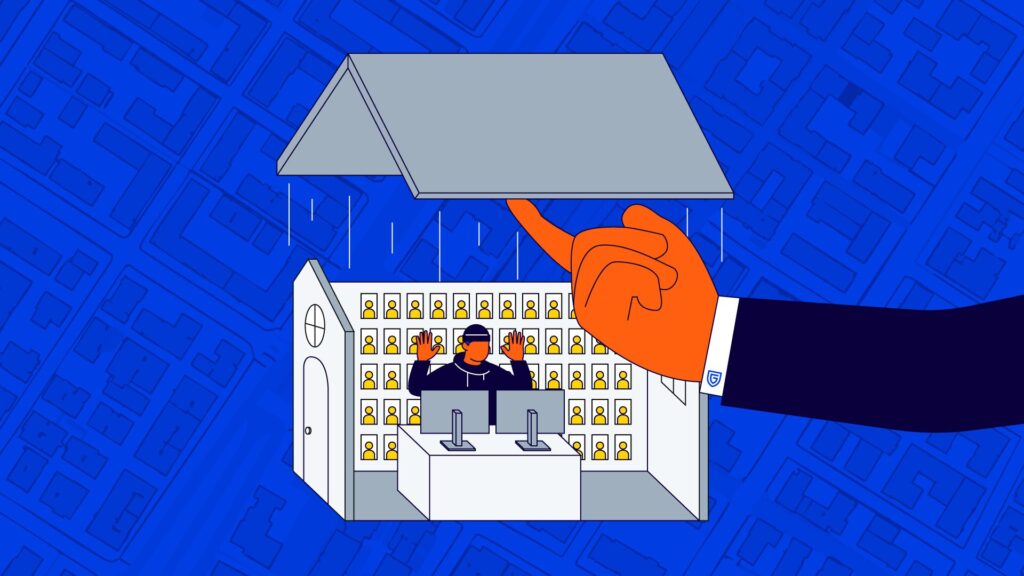For a type of fraud that is often conducted by ordinary, day-to-day customers, $132 billion a year in costs is probably not the first thing to come to mind. But for businesses, this can make or break their bottom line. The combination of inventory loss, revenue loss, and resource strains cuts directly into businesses’ profits – and friendly fraud only continues to grow year after year. In fact, it makes up as much as 70% of all credit card fraud, yet it still remains difficult to prevent and dispute.
Friendly fraud has seen a 32% increase year over year in the U.S. market.
Source: Mastercard.
Friendly fraud can be initiated by honest individuals who had a misunderstanding or error, making it difficult to prove intent. Not to mention, it can be both tedious and time-consuming for businesses to gather all the evidence they need to dispute the charge.
But before we dive further into this, let’s first explore what this type of fraud entails.
Friendly fraud: An overview
Friendly fraud happens when a cardholder disputes a legitimate transaction on their card, claiming the purchase was unauthorized, faulty or not received. There are primarily two approaches to committing friendly fraud.
- Chargeback fraud – When a cardholder or customer initiates a fake chargeback for a purchase they actually made.
- Refund abuse – When a cardholder or customer takes advantage of the refund policy to get their money back for a legitimate purchase.
Friendly fraud can happen for many reasons, some intentional and others accidental.
Some common reasons include:
- Human error – When customers file an illegitimate chargeback because they genuinely did not recognize a transaction or forgot they made a purchase.
- Buyer’s remorse – When customers regret a purchase they made and intentionally try to get their money back through a false chargeback claim or a refund.
- Family fraud – When a cardholder’s family member makes a purchase on their card without their knowledge. This can lead to an accidental chargeback claim.
- False merchant error claims – When cardholders falsify claims related to the merchant, such as missing or delayed deliveries, poor product quality or missing items.
- Double Dipping – An intentional form of fraud that occurs when a customer knowingly makes a purchase they intend to keep but requests a refund anyway. If successful, the customer ends up keeping both the product and the refund.
While chargebacks and refunds are not always malicious or intentional, it can still lead to serious repercussions for businesses. Additionally, repeated offences can negatively affect other customers.
Friendly Fraud: Not so friendly to businesses and customers
Friendly fraud can lead to significant consequences for both businesses and buyers, including:
- Revenue loss—When customers dispute charges or request refunds, businesses lose both the revenue and the product.
- Increased operating costs—Businesses incur additional fees for chargebacks. If the number of chargeback cases increases, payment processors will also impose higher fees or penalties, resulting in increased costs.
- Reputational damage with payment processors—High chargeback rates can damage businesses’ reputations with payment processors, flagging them as high-risk. This leads to higher fees or even account termination altogether.
- Higher prices passed to customers—Businesses may increase their prices to offset losses caused by friendly fraud. This negatively affects the customer satisfaction of honest buyers and reduces their buying power.
- Tightened return or refund policies—Businesses may tighten their return and refund policies in order to prevent friendly fraud. This adds an additional layer of friction for genuine customers who are actually seeking to return a product or get a refund.
Despite the negative impact of friendly fraud on both businesses and customers, it continues to see an alarming rise. In fact, it’s already increased by 20% – 30% across global markets, and is only expected to grow in the following years.
While the exact drivers of this increase can be difficult to pinpoint, many factors could be influencing this trend.
Friendly fraud in the modern era
A combination of increased digital adoption and economic pressures may influence the rise in friendly fraud. This is especially true for customers who grew up in a digital era with difficult economic conditions.
For instance, digital adoption has made filing chargeback claims or returns easier than ever. In the past, people had to physically return to the store to complete refunds or returns, but in today’s digital age, all it takes is a few clicks.
Additionally, the availability of information in the digital space allows for easier access to resources that enable friendly fraud, such as online tutorials and guides. Economic pressures can also lead to acts of financial desperation or increased buyer’s remorse, causing legitimate customers to turn to friendly fraud.
It’s also crucial to consider that friendly fraud may not be viewed as fraud by the average person. In fact, many might justify it by viewing it as a life hack, fighting the rigged system, or claiming that they need the money more than businesses that can “handle the loss.”
Combating friendly fraud: Deploying the right tools and tactics
Handling chargebacks is often an expensive, resource-intensive process. In fact, 60% of merchants leave at least 40% of chargebacks undisputed, resulting in substantial revenue losses and operating costs. Given that merchants only typically win 20-30% of their chargeback disputes and can have as little as 20 days to dispute these claims, many end up writing off chargeback claims as an inevitable loss.
Merchants typically have 20 to 45 days to dispute a chargeback upon being notified by their network. The entire process can take up to 120 days.
– Mastercard.
Fortunately, with the right tools in place, disputing chargeback claims can be a quick and scalable process. For instance, advanced geolocation and device intelligence can provide the evidence needed to prove the intention and legitimacy of a transaction beyond a doubt.
GeoComply has particularly found success for its customers with chargeback disputes. Our customers have seen win rates of up to 90%, generating compelling evidence reports in just 60 seconds or less. With these quick and efficient self-generated reports, transactions of any size, no matter how small, are worthwhile.
GeoComply can be your partner in combatting friendly fraud:
- Save time and resources by generating and submitting reports in less than 60 seconds
- Submit reports that are accepted by 70+ payment processors and exceed expectations
- Cut time spent on chargeback disputes by up to 90%
- Let GeoComply eliminate time-consuming exchanges with payment networks by continuously updating guidelines and qualification criteria
Looking ahead: The future of friendly fraud
As long as digital commerce platforms continue to grow, friendly fraud will rise along with it. In fact, Mastercard predicts that chargeback volumes will rise to 337 million by 2026 – a 42% increase from 2023. While friendly fraud will continue to rise, businesses do not need to suffer from the consequences.
Technological advancements like GCI are providing businesses with powerful tools to effectively dispute and prevent friendly fraud. By implementing the right solutions, merchants can significantly reduce the financial impact of friendly fraud and safeguard their revenue streams. This not only protects their bottom line but also enhances the overall customer experience by reducing the friction associated with legitimate transactions.
Want to beat chargeback fraud and boost your win rates?
Learn how GeoComply can help your business win chargeback disputes by up to 90%




